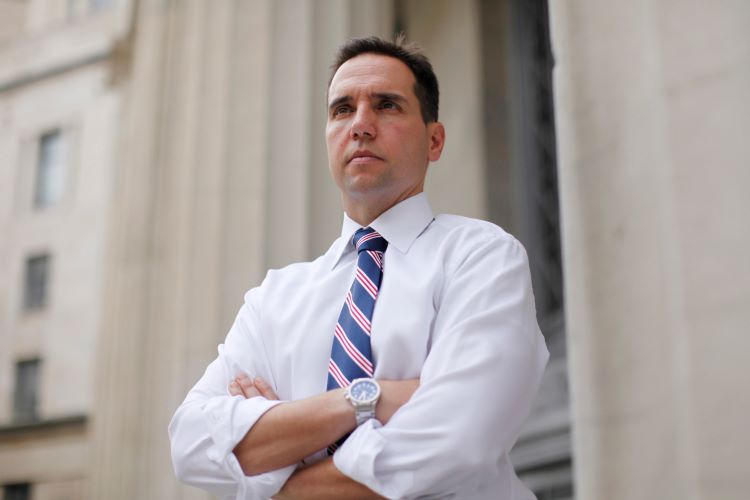Was Jack Smith's appointment unconstitutional? He has no more authority than Taylor Swift, amicus brief argues

Veteran prosecutor Jack Smith in August 2010. According to an amicus brief signed by a former U.S. attorney general and two law professors, Smith’s appointment was unconstitutional, leaving him powerless to obtain a quick U.S. Supreme Court decision on immunity claims by former President Donald Trump. Photo by Charles Dharapak/The Associated Press.
Special counsel Jack Smith’s appointment was unconstitutional, leaving him powerless to obtain a quick U.S. Supreme Court decision on immunity claims by former President Donald Trump, according to an amicus brief signed by former U.S. Attorney General Edwin Meese and two law professors.
“Not clothed in the authority of the federal government, Smith is a modern example of the naked emperor,” the Dec. 20 amicus brief argues. “Improperly appointed, he has no more authority to represent the United States in this court than Bryce Harper, Taylor Swift or Jeff Bezos.”
The law professors who co-wrote the brief with Meese are Steven G. Calabresi of the Northwestern University Pritzker School of Law and Gary S. Lawson of the Boston University School of Law.
Calabresi summarized the arguments in a post for the Volokh Conspiracy.
The brief argues that Attorney General Merrick Garland “exceeded his statutory and constitutional authority” when he appointed Smith in November 2022. Because Smith’s appointment was unconstitutional, “every action that he has taken since his appointment is now null and void,” Calabresi argued at the Volokh Conspiracy.
Smith—who was not nominated to be special counsel by President Joe Biden or confirmed by the U.S. Senate—has nationwide jurisdiction, making him more powerful that any of the 93 Senate-confirmed U.S. attorneys, Calabresi said. Federal law allows the attorney general to appoint attorneys to assist U.S. attorneys but not to replace them, he wrote.
The argument is that the appointments clause requires all federal offices “not otherwise provided for” in the Constitution to be established by law. Yet there is no statute establishing the Office of Special Counsel within the U.S. Department of Justice. Nor is there a statute allowing the attorney general to appoint an inferior officer special counsel with the powers given to Smith. And inferior officers, in any event, must be controlled by a superior officer, but Garland doesn’t have that power over Smith under DOJ regulations.
The appointments clause makes clear that the “default mode” of appointment for all officers is presidential nomination, Senate confirmation and presidential appointment, the brief says.
There is a proper way to appoint a special counsel like Smith, Calabresi said at the Volokh Conspiracy. Garland should “ask one of the very best Senate-confirmed U.S. attorneys now in office to prosecute the cases arising out of the events of Jan. 6, 2021, or the misuse of classified documents case, to be special counsel” with nationwide authority.
The attorney general could then appoint Smith to be the special counsel’s special assistant, and the Trump cases could then be “restarted from scratch” Calabresi wrote.
“We do not want future U.S. attorney generals, such as the ones Donald Trump might appoint, if he is reelected in 2024, to be able to pick any tough thug lawyer off the street and empower him in the way Attorney General Merrick Garland has empowered private citizen Jack Smith,” Calabresi wrote. “Think of what that would have led to during the McCarthy era.”



